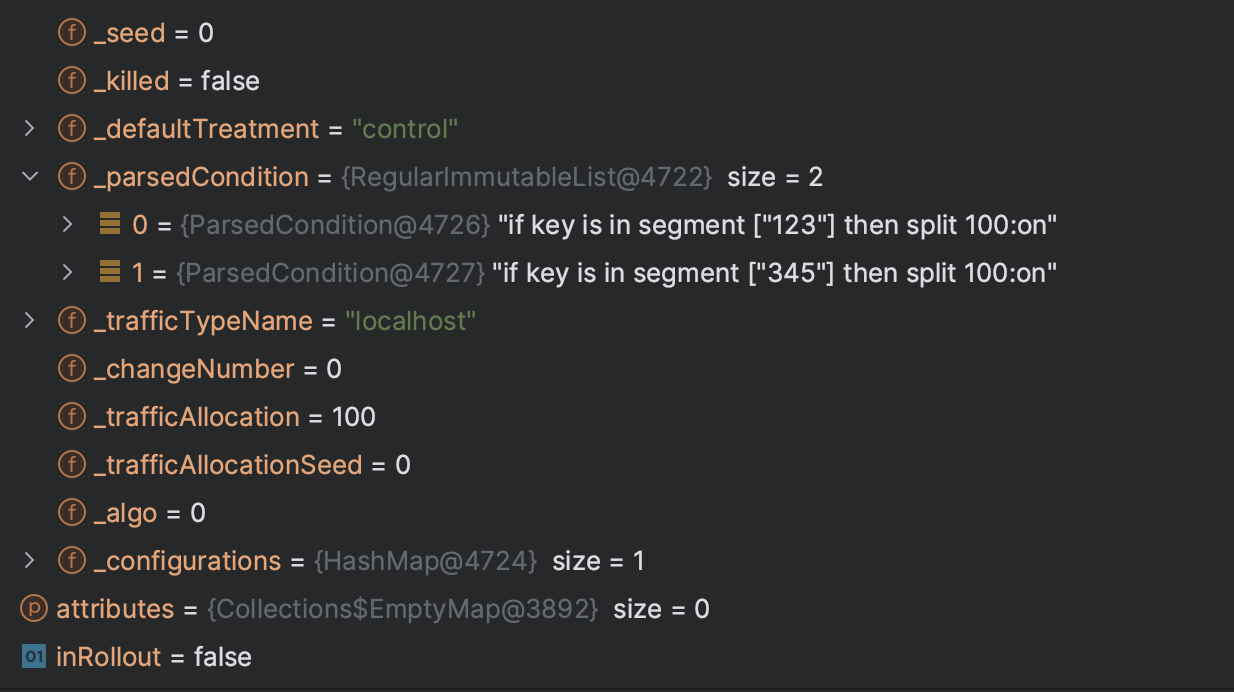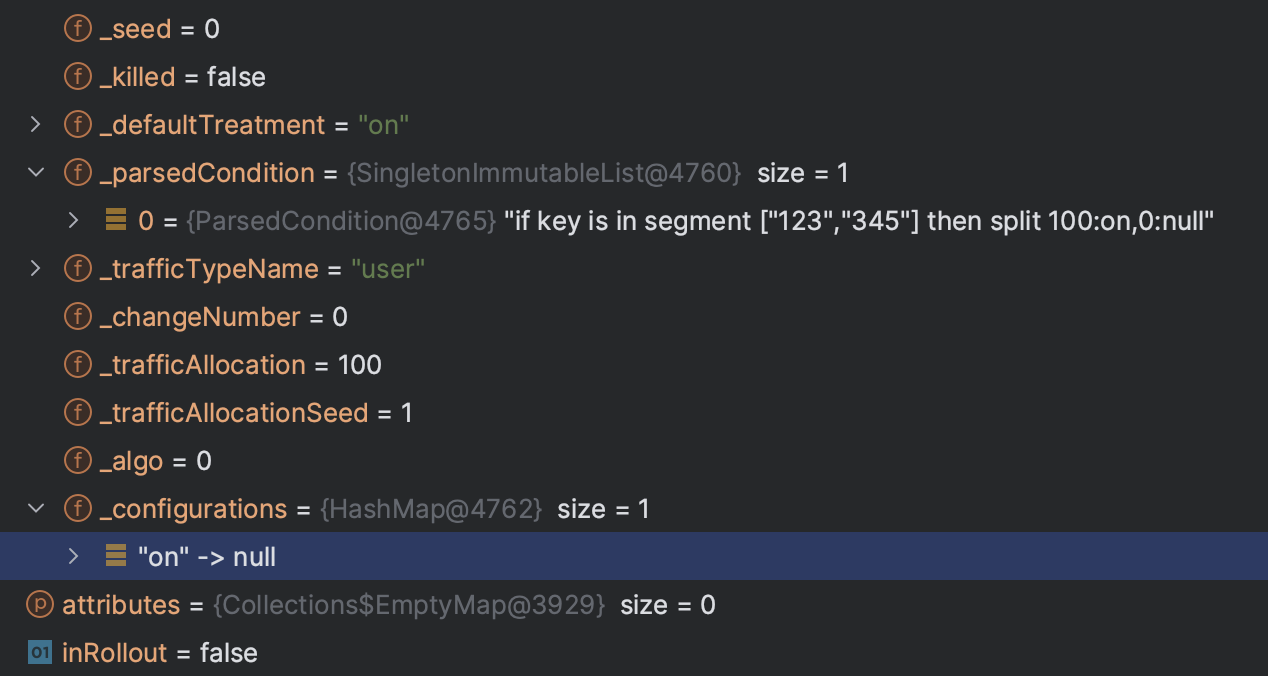This SDK is designed to work with Split, the platform for controlled rollouts, serving features to your users via feature flags to manage your complete customer experience.
This SDK is compatible with Java 8 and higher.
Below is a simple example that describes the instantiation and most basic usage of our SDK:
import io.split.client.SplitFactoryBuilder;
import io.split.client.SplitClient;
public class App {
public static void main() {
SplitClientConfig config = SplitClientConfig.builder()
.setBlockUntilReadyTimeout(10000)
.build();
SplitFactory splitFactory = SplitFactoryBuilder.build("YOUR_SDK_KEY", config);
SplitClient client = splitFactory.client();
try {
client.blockUntilReady();
} catch (TimeoutException | InterruptedException e) {
// log & handle
}
String treatment = client.getTreatment("CUSTOMER_ID", "FEATURE_FLAG_NAME");
if (treatment.equals("on")) {
// Feature flag is enabled for this user!
} else if (treatment.equals("off")) {
// Feature flag is disabled for this user!
} else {
// Unable to perform evaluation.
}
}
}The Split team monitors all issues submitted to this issue tracker. We encourage you to use this issue tracker to submit any bug reports, feedback, and feature enhancements. We'll do our best to respond in a timely manner.
Please see Contributors Guide to find all you need to submit a Pull Request (PR).
Licensed under the Apache License, Version 2.0. See: Apache License.
Split is the leading Feature Delivery Platform for engineering teams that want to confidently deploy features as fast as they can develop them. Split’s fine-grained management, real-time monitoring, and data-driven experimentation ensure that new features will improve the customer experience without breaking or degrading performance. Companies like Twilio, Salesforce, GoDaddy and WePay trust Split to power their feature delivery.
To learn more about Split, contact [email protected], or get started with feature flags for free at https://www.split.io/signup.
Split has built and maintains SDKs for:
- Java Github Docs
- JavaScript Github Docs
- JavaScript for Browser Github Docs
- Node Github Docs
- .NET Github Docs
- Ruby Github Docs
- PHP Github Docs
- Python Github Docs
- GO Github Docs
- Android Github Docs
- iOS Github Docs
- Angular Github Docs
- React Github Docs
- React Native Github Docs
- Redux Github Docs
For a comprehensive list of open source projects visit our Github page.
Learn more about Split:
Visit split.io/product for an overview of Split, or visit our documentation at help.split.io for more detailed information.





